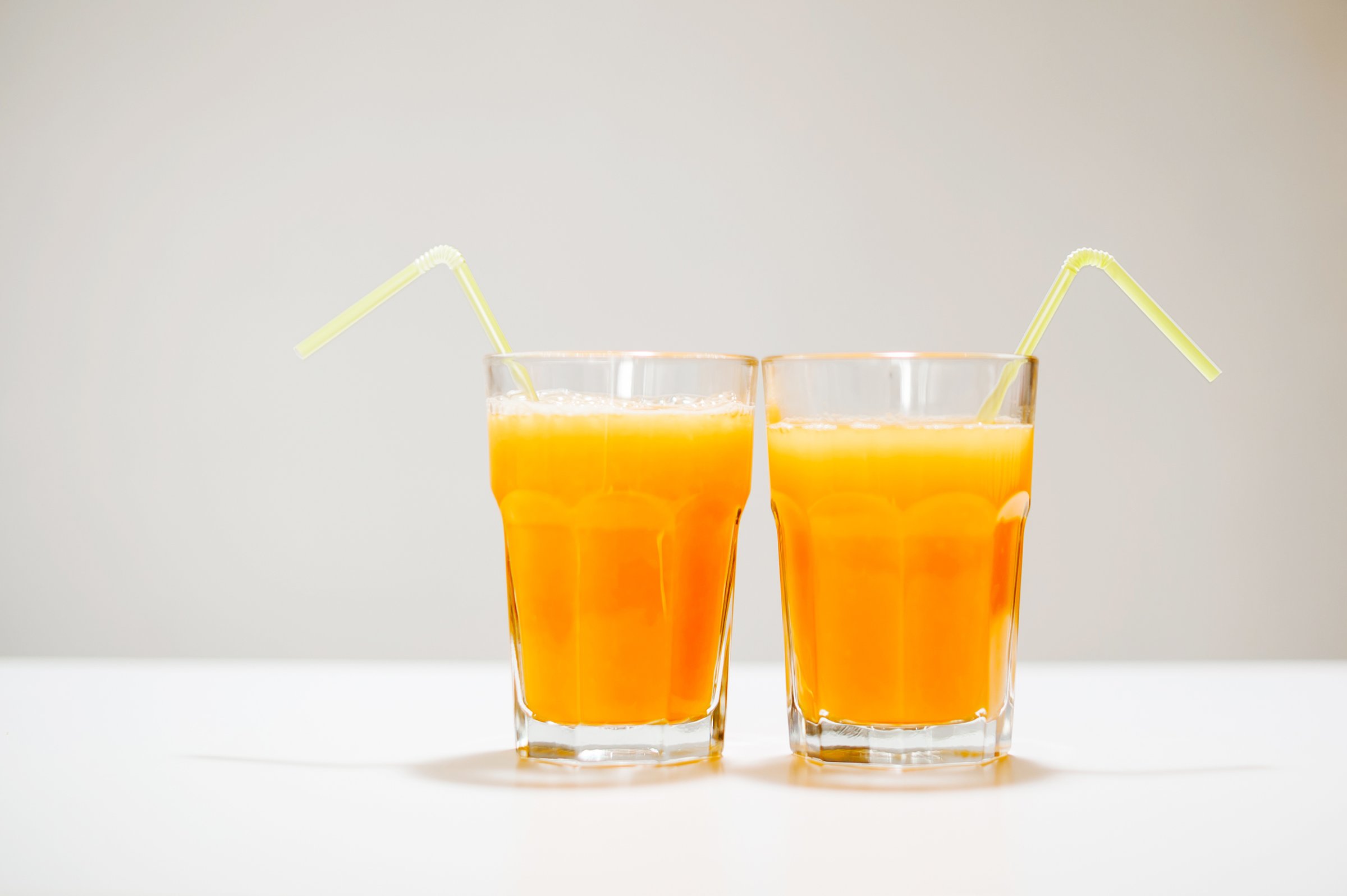
Just a single serving of some fruit drinks, like juice and smoothies, contain an entire day’s sugar allotment for a child, finds a new study.
In the report, published in the journal BMJ Open, researchers analyzed the sugar content of 100% fruit juices, juice drinks and bottled smoothies that were marketed to children. They calculated the amount of “free sugar” in each drink, which was defined as sugars added by the manufacturer—including glucose and fructose—as well as sugars in items like honey or syrups. They did not include natural sugars found in whole fruits and vegetables.
The researchers discovered that nearly half of the beverages contained a full day’s recommended maximum amount of sugar for a child, which in the U.K. (where the study took place) is 19 grams or almost five teaspoons.
“Most people assume, wrongly, that fruit juice is healthy and contains little free sugar,” says study author Dr. Simon Capewell, a professor of clinical epidemiology at the University of Liverpool. Though the sugar content ranged widely product to product, “the ones we tested contained up to six teaspoons of sugar in a standard 200 ml serving, twice the daily recommended limit for a young child,” says Capewell. People commonly make the same mistake with smoothies, which most people assume are “super healthy,” he says. The smoothies tested by the team had up to eight teaspoons of sugar in the standard serving, which is three times the daily amount recommended to a young child based on U.K. guidance.
One of the main differences between eating a whole fruit and drinking it as a juice or smoothie is that healthy fiber, which helps slow the body’s absorption of sugar, is lost during processing.
Many of the juices used artificial sweeteners without any calories, but the researchers were skeptical about how great of an improvement that is for kids’ drinks. “Although replacing sugars with non-caloric sweeteners may lead to improved markers of long-term metabolic health and weight loss, it will not necessarily provide a long-term solution to reducing sugar consumption and subsequent health problems,” they write.
As always, eating more whole fruits and vegetables is the best option.
More Must-Reads from TIME
- Cybersecurity Experts Are Sounding the Alarm on DOGE
- Meet the 2025 Women of the Year
- The Harsh Truth About Disability Inclusion
- Why Do More Young Adults Have Cancer?
- Colman Domingo Leads With Radical Love
- How to Get Better at Doing Things Alone
- Michelle Zauner Stares Down the Darkness
Contact us at letters@time.com